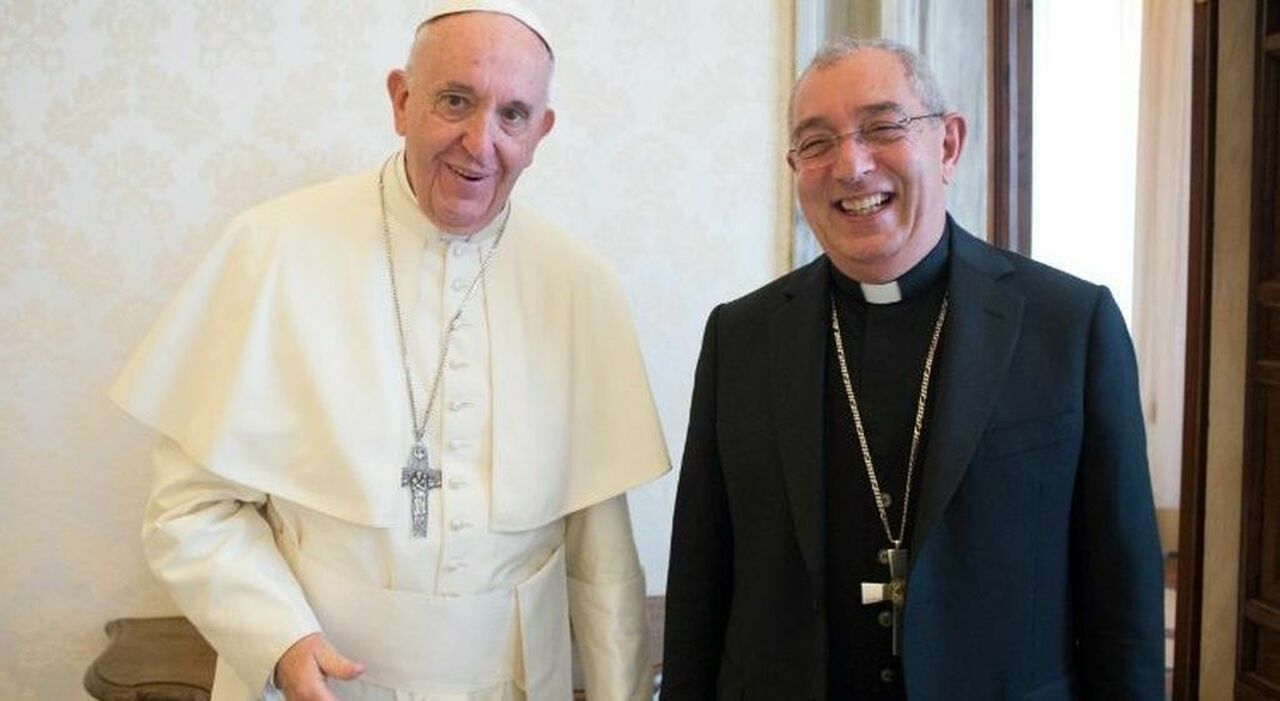Saturday 6 April 2024, 17:55 - Last updated: 18:39
In view of the Jubilee, the Pope has literally shaken the Vicariate of Rome. Cardinal Vicar Angelo De Donatis, 70, has been relieved of his duties and assigned to the Apostolic Penitentiary, technically one of the three judicial bodies of the curia and also one of the oldest, but in fact, it is considered a kind of elephant graveyard. An unusual and certainly unprecedented move: all the last popes have always maintained a strong relationship with their own cardinal vicar, a precious and central figure for being the transmission belt between the Apostolic Palace and the city of Rome. Just think of the strong relationship that linked Wojtyla with Cardinal Ruini or Benedict XVI with Cardinal Vallini. At the same time, Pope Francis has also moved Jesuit Daniele Libanori, until now one of the four auxiliary bishops of Rome, to the curia. An ad hoc position has been created for him, directly under the Pope, at the congregation of Religious. Who knows if it was done to distance him from the Lateran Palace where, in recent years, he had come into conflict with De Donatis. Libanori fought like a lion to bring the former Jesuit priest Marko Rupnik, a world-famous artist but very controversial because accused of repeated sexual and psychological violence against several nuns, to canonical justice. Offenses considered prescribed by civil legislation but well known to the Dicastery of the Faith so much so that four years ago he was excommunicated and then mysteriously canceled months later. There was the intervention of the 'little hand' of some protector in high places and whose identity at the moment remains mysterious to most. The move by Francis is said to have been taken in view of the Jubilee in an attempt to turn the page at the Vicariate and create the basis for less conflictual and more collaborative internal arrangements with the outskirts. In recent years, the shocks at the Lateran have not been lacking. To begin with, the Pope sent three auxiliary bishops to Italian dioceses. Such a turnover had never been seen: Gianrico Di Ruzza, Giampiero Palmieri, and Paolo Lojudice, the latter then made cardinal in Siena and now in line to replace De Donatis although he is not the only cardinal figure being talked about behind the scenes. Other names circulating refer to Cardinal Matteo Zuppi, who could return to 'his' Rome from Bologna, or the current auxiliary bishop Baldo Reina, of Sicilian origin, very open and amiable. However, Francis' choice has not yet matured and on Monday morning he will have a meeting with all the Roman auxiliary bishops. It is also possible (and no one excludes it) that he chooses not to have a cardinal vicar in Rome anymore but only a reference bishop just as it was for some periods in past centuries. The Vicariate of Rome in recent years has been subjected by Francis to a real shock treatment to better control its internal activity and align it with his idea of a field church, a bit activist, not inclined to the palaces of power and more to the needy outskirts. With the Apostolic Constitution in Ecclesiarum Communione, he revised the functioning of the Vicariate by appointing a supervisory commission endowed with broad powers to examine, control, evaluate budgets, verify the management of real estate, the transparency of rental contracts and that of tenders, the regularity of employment relations and to carry out all the administrative checks necessary to ascertain the existence of any damage to the assets. An important text with which the mechanisms of power distribution of the territorial competence sectors of the four auxiliary bishops were also reviewed, thus emptying the figure of the cardinal vicar of Rome. In October 2021, Francis had sent a team of financial and economic experts to the Lateran Palace to conduct a full audit. The goal was to carry out an assessment on the consultative and forecast budget of the diocese and to monitor investments and management. In the meantime, there were many complaints from many parish priests about the general running of the diocese. Letters piled up on the Pope's desk and this induced him to undertake a series of visits to the peripheral parishes to have a direct dialogue with the priests. Last Friday he was at Casal Monastero, the fourth visit in the last seven months. Francis was in a wheelchair, with the usual difficulty breathing but dispensing good humor to those present. Cardinal De Donatis was obviously absent in all these visits.
© ALL RIGHTS RESERVED
This article is automatically translated
